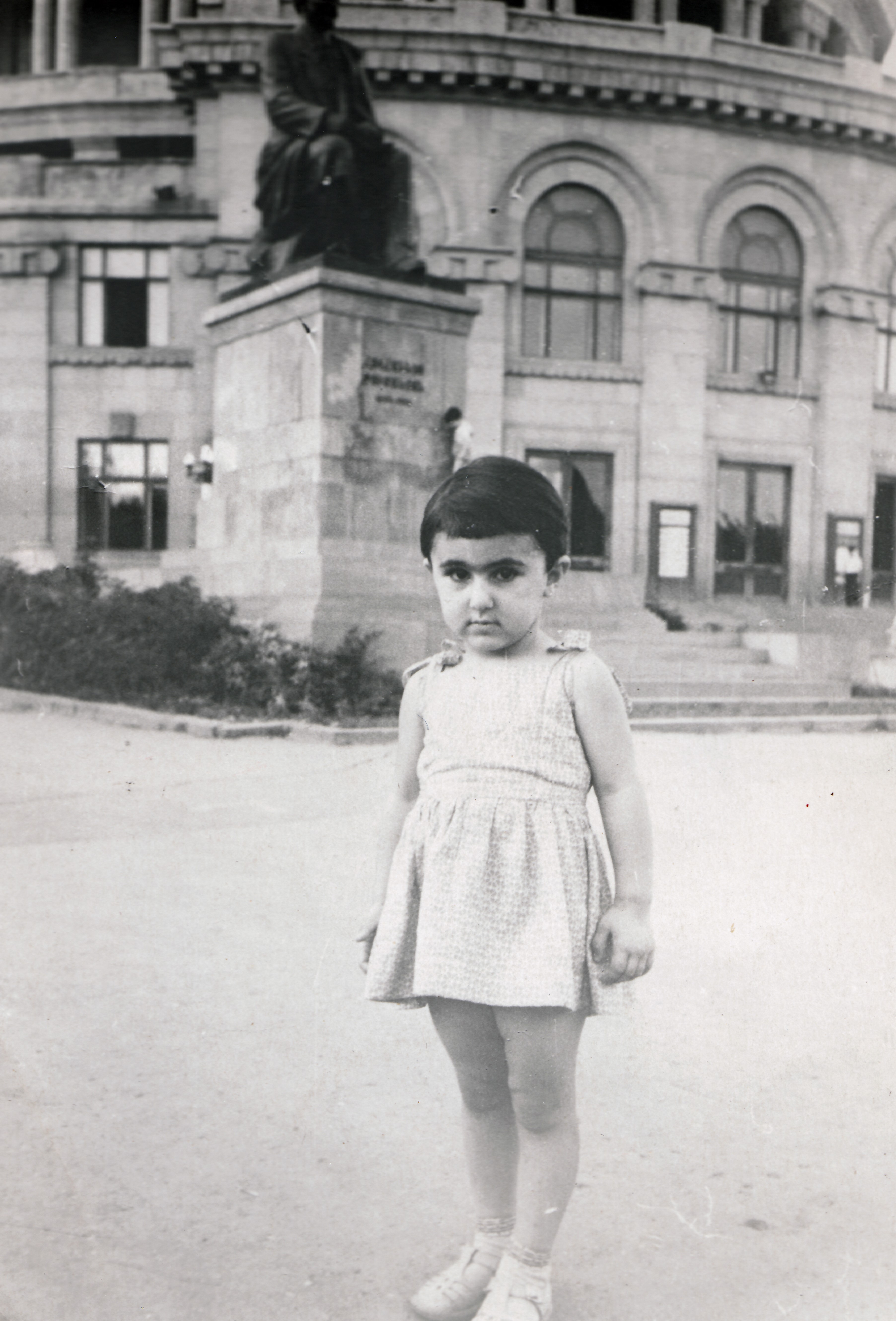The building where we lived at that time was the same building where I live now. I have lost my parents, but I live in the same place. It was already dark, it was evening. It was the February of 1988. My mom was talking to someone and she said, “Marine, you know, for Artsakh… (well, back then they were saying Karabakh, to be honest), there is a rally for Karabakh in the city.” And to tell the truth, I had heard about 1-2 rallies before that, but those were some small demonstrations. But she said it was a big rally. I remember going out to the balcony. Our balcony overlooks Baghramyan [avenue]. I just went out because, to be honest, I was lost in thought. It was already dark, back then I was a shy girl [laughs], I was wondering if I should go down to the city. To be honest, I didn’t go down that day. But the question was that when I went out to the balcony, and suddenly I heard that ‘Gha-ra-bagh, u-ni-fi-ca-tion,’ I don’t know if you will remember it, I thought I was hallucinating. I had no idea. Our [balcony] watches from the above, but it is quite far from Baghramyan, it is high, it is the lower end of Papazyan street. And I said: what is this? And those who had heard that sound at that time, for several years that sound was constantly heard in Yerevan: ‘U-ni-fi-ca-tion, Gha-ra-bagh.’ To tell the truth, when those rallies stopped, that sound was still in my ears. I have told about this some other people too. I’m not the only one who hears it. Those who remember the Soviet buildings, remember that there was this general heating system. And when the water was pumped into the heating batteries, there was a sound… Maybe that sound in my ear, that ‘u-ni-fi-ca-tion’ did not exist, to be honest, I feel sorrow, my body aches. What was that, that sound? It was not only Karabakh. To tell the truth, being a philologist myself, being very interested in our national history, especially the Karabakh issue, I don’t want to lie, I didn’t know anything in particular. I knew there was something that... correspondence, but I was not aware of that big issue, which I understand now was in fact a big problem. But when people were shouting Karabakh, in my opinion, they were not just shouting Karabakh. I mean, what happened next. Half of Yerevan poured into the streets. Karabakh itself symbolized all that we lost. For example, for my mom, obviously her Sebastia and her Kayseria [currently Sivas and Kayseri in Turkey]. I mean, it was not necessary to say that, it was clear. Otherwise, it would not have been possible for so many people to pour into the streets [laughs]. I told you it was dark and I did not go down, then the next day I went down and didn’t go home.





